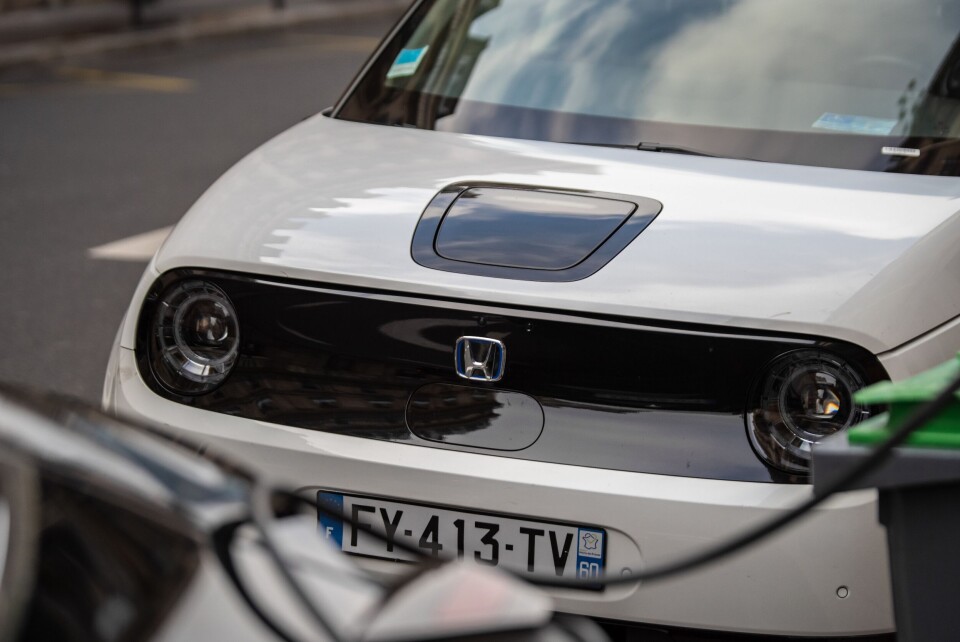-
Exemption from fees to register electric car to end across most of France from May
Applying for a carte grise will soon become more expensive
-
Good news for electric car owners in France as thousands more charging stations to be installed
MPs recently rejected plans to bring forward ban on petrol vehicles
-
Why repairing your car in France is becoming increasingly expensive
The cost has soared by more than 25% since 2020, with electric vehicles most dear, a new report has shown
What help is available to rent an electric car in France?
Generous grants are available in France when you swap your old car for an electric model, but did you know you can also get help when renting an electric vehicle?

Reader question: I have been told that grants are available for leasing an electric car in France. How do they work and are they applied automatically?
Although much of the government’s communication around electric vehicles has focused on help to buy a new electric car, you are correct that some schemes apply to long-term rentals.
More and more people are opting to rent, particularly when switching to electric cars as they tend to be more expensive.
Available grants include the bonus écologique, worth 27% of the price of the car for buyers up to a maximum grant of €5,000, or 40% and up to €6,000 for a van.
Low-income households can claim an additional amount of €2,000 on top of their grant.
For second-hand vehicles, you can only receive a fixed €1,000.
Read more: Buying an electric car: What French aids are available to help?
Read more: France to offer €30,000 loans to help buy hybrid or electric vehicles
You can apply for the bonus in the case of renting if the rental contract is at least two years. In this case, it is the total cost over the duration of the contract that is taken into account to work out the grant.
To be eligible, the car model should be worth no more than €47,000.
The grant must be applied for at primealaconversion.gouv.fr no more than six months after the first rental payment.
Alternatively, a dealership might agree to deduct the value of the grant directly from the price.
In the case of a rental, Renault told The Connexion the dealer would add the value of the grant to the first rental payment, so if the rent is €300 per month and the grant is for €2,000, the first payment would be worth €2,300, but you would only pay €300.
The prime à la conversion, a grant for replacing an old petrol (pre-2006) or diesel (pre-2011) car with a low-emissions vehicle, also applies to rentals and the two can be combined if you are eligible for them both (though, obviously, not so you obtain more than the vehicle is costing you).
Means-tested
This is means-tested – your taxable income per household ‘part’ must be below €22,983.
The amount is fixed at €2,500 in many cases, but can rise to €6,000 if you have a very low income and/or require your vehicle to get to work.
Again, this might be paid directly by the dealership, otherwise you must apply at the website cited above.
There is also a loan called a microcrédit véhicules propres, which can be used towards renting a vehicle, but this is exclusively for people on very low incomes, in a fragile professional situation, or who are excluded from the traditional banking system.
In January, France was due to begin a two-year experiment into another type of help: an interest-free loan to provide vehicles that emit less than 50g of CO2 per kilometre for people who live in a low-emissions zone (ZFE).
However, it has yet to get under way.
For the purchase of a vehicle, the loan would be worth up to €30,000 and would be repayable over seven years.
For a long-term rental or rental with a purchase option, the maximum would be €10,000, repayable over the length of the contract.
In the meantime, a major programme dedicated to electric cars is in the works.
As part of his re-election campaign in 2022, Emmanuel Macron promised that up to 100,000 electric vehicles would be made available for long-term hire at a cost of €100 per month.
Read more: France wants to make €100-a-month electric cars a reality
Read more: Macron promises up to €12,000 to buy eco cars
The measure was included in the 2023 budget.
In February, Prime Minister Elisabeth Borne said: “I can confirm that, from the autumn, those who are eligible will be able to reserve their vehicle, which will be delivered in 2024.”
The scheme is expected to be restricted to people on low incomes, young drivers, and certain professions such as nurses, although the precise income cap has not been announced.
It is expected to be limited to cars made in France or the EU.
Related articles
Electric cars, hybrids, public chargers - views of EV owners in France
What are options to install electric car charge point at French home?
























